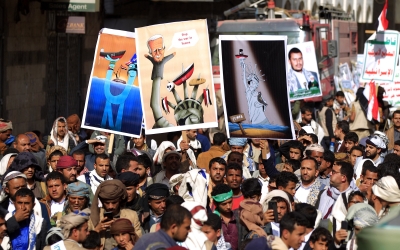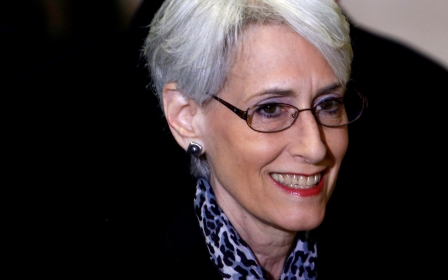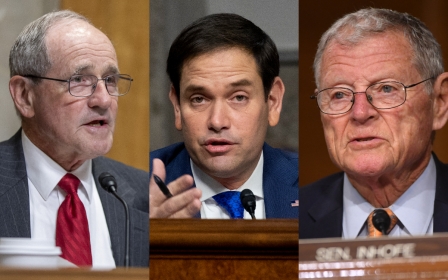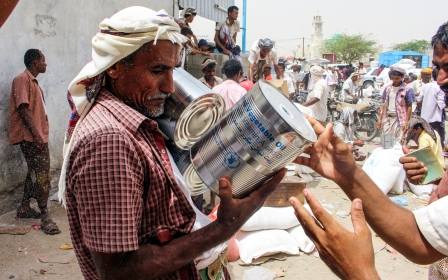Iran says US must be held accountable for 'crimes in Yemen'
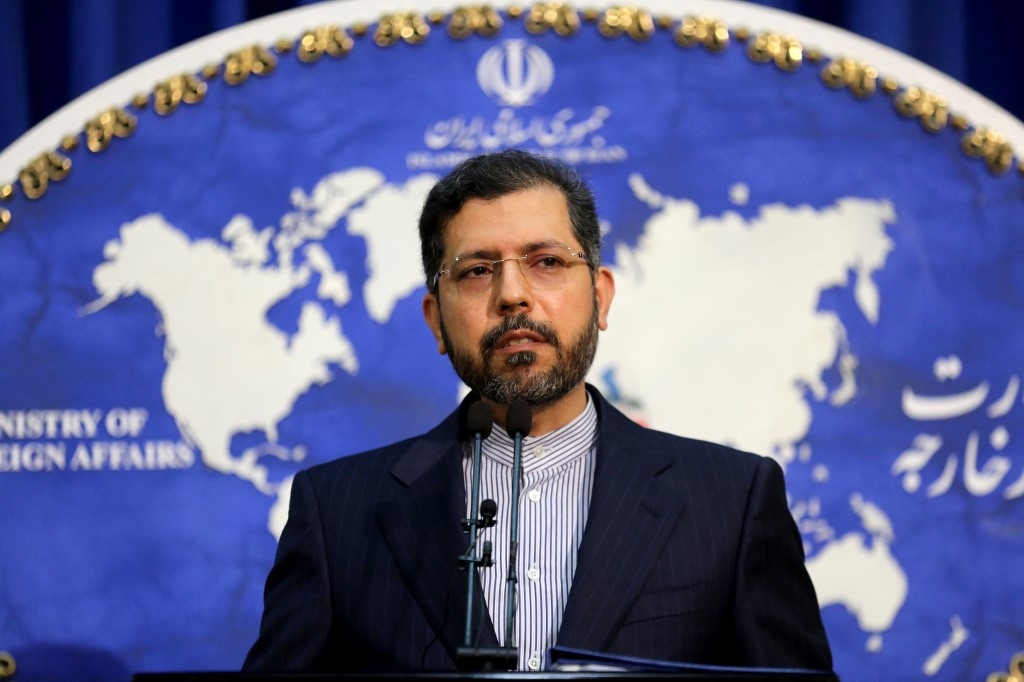
Iran's foreign ministry hit back at American accusations that Tehran is prolonging the conflict in Yemen, saying that Washington must be held accountable for "crimes" in the war-torn country, following a move by the Biden administration to sanction two Houthi commanders.
Saeed Khatibzadeh, Iran's foreign ministry spokesman, rejected on Wednesday the US claim that Iran has been fanning "the flames of the conflict" in Yemen and lashed out at Washington for selling weapons to the Saudi-led coalition, calling its role in the war a "blood trade".
New MEE newsletter: Jerusalem Dispatch
Sign up to get the latest insights and analysis on Israel-Palestine, alongside Turkey Unpacked and other MEE newsletters
"The Americans, who must be held accountable for their crimes in Yemen for six years, cannot make groundless accusations against others as a plaintiff," he said in a statement.
"The Islamic Republic of Iran's stances have been clear since the outset of the Yemen war, as we have always emphasised that there is no military solution to the crisis in Yemen," he added.
On Tuesday, the US sanctioned Mansur al-Saadi, the Houthi naval forces chief of staff, and Ahmad Ali Ahsan al-Hamzi, commander of the Yemeni air force and air defence forces.
According to the US government, both Houthi officials received training in Iran.
"Iran's involvement in Yemen fans the flames of the conflict, threatening greater escalation, miscalculation, and regional instability," Secretary of State Antony Blinken said in a statement announcing the sanctions.
The designations came weeks after the administration removed the rebel group from its blacklist of foreign terrorist organisations, which was done to ease the delivery of humanitarian aid into areas under their control.
US ends support for Saudi-led coalition
Last month, US President Joe Biden announced that Washington was halting support for Saudi offensive operations in Yemen, in a major policy reversal that fulfilled a campaign promise he had shared with all Democratic presidential candidates.
The administration also said it imposed a temporary freeze on Trump-era arms sales to Saudi Arabia, including the sale of precision-guided munitions, as it issues a review of the deals.
Still, the administration has repeatedly pledged to remain committed to the kingdom's national security while many in Congress have called for clarifying details on the new Yemen policy.
"We will ensure Saudi Arabia and our regional partners have the tools they need to defend themselves, including against threats emanating from Yemen that are carried out with weapons and support from Iran," Blinken said on Tuesday.
Saudi Arabia has led a coalition with regional allies in Yemen since 2015 against the country's Houthi rebels to restore the government of President Abd Rabbuh Mansour Hadi.
Riyadh views the Houthis as Iran proxies, but the rebels deny receiving material support from Tehran.
The war has killed more than 230,000 people, caused outbreaks of disease and brought Yemen to the verge of famine, in what the United Nations calls the world's worst humanitarian crisis.
Middle East Eye delivers independent and unrivalled coverage and analysis of the Middle East, North Africa and beyond. To learn more about republishing this content and the associated fees, please fill out this form. More about MEE can be found here.


